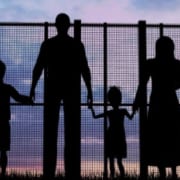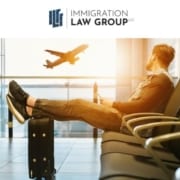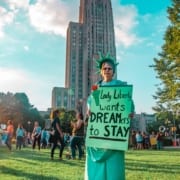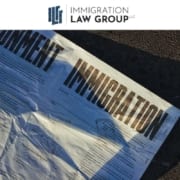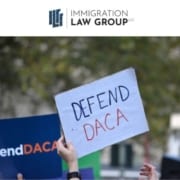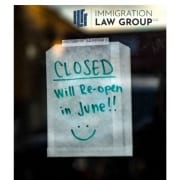Can I still sponsor my Spouse, Parent, or Child for a Green Card during Covid-19?
As COVID-19 disrupts immigration services and proceedings in the U.S., many citizens wonder if they can still petition their relatives. Yes!—if you are a U.S. citizen of at least 21 years of age, you can still sponsor your spouse, parent, or child for a Green Card during the Covid-19 pandemic.
Steps to take to sponsor an alien immediate relative
U.S. Green Cards allow foreign nationals to permanently reside and work in the United States.
While all USCIS in-person activities, including in-person interviews, have been temporarily suspended due to the coronavirus pandemic until June 4th, measures U.S. citizens must take to sponsor a relative for a Green Card are not be impacted by the USCIS office closures. While green card applicants and petitioners can wait until the response to COVID-19 is over, this is certainly not necessary and does not mean that the processing time will be any quicker.
First, the petitioner (the U.S. citizen sponsoring the foreign immediate relative) must file Form I-130, Petition for Alien Relative. This form establishes the family relationship between the petitioner(s) and the applicant relative (the beneficiary).
Once Form I-130 is approved, an immigrant visa will be immediately available for the beneficiary. If the immediate relative is already in the United States, he or she can submit an Adjustment of Status applications to obtain permanent legal residency if he or she successfully passed an interview with a local USCIS field office. Note that these USCIS interviews thus far have been canceled and rescheduled. USCIS offices will send notices with instructions to applicants and petitioners with scheduled interview appointments impacted by this closure. Once normal operations are able to be resumed, they will automatically be rescheduled. Through this process, the beneficiary will not need to return to his or her home country.
If the immediate relative is abroad, the beneficiary will have an immigrant visa interview overseas at a U.S. Department of State consulate or embassy through Consular Processing. Again, if a beneficiary’s home country is impacted by COVID-19 closures, he or she must wait for their local interviews to be rescheduled.
While some marriage-based green card applicants have also been approved without interviews in the previous weeks, it is most likely that the interview process will not be waived, as it is important to screen cases for fraud.
Sometimes, a petitioner can file the I-130 with an application for permanent residence (Form I-485, Application to Register Permanent Residence or Adjust Status) if they are sponsoring a spouse, an immediate relative parent, or an unmarried child under 21 years of age. After the I-485 is filed, beneficiaries may also apply for an I-765 work permit or a I-131 travel permit.
Note that non-immediate family relationships that qualify for sponsorship may also include Unmarried sons and daughters of U.S. citizens, spouses and children (F1), and Unmarried sons and daughters of permanent residents, Spouses and Children of Permanent Residents (F2A), Unmarried Sons and Daughters (21 years of age or older) of Permanent Residents (F2B), Married Sons and Daughters of U.S. Citizens (F3), and Brothers and Sisters of Adult U.S. Citizens (F4).
In these family cases, an immigrant visa will not be immediately available upon approval of form I-130, and depends upon the Visa Bulletin issued monthly by the Department of State. The Visa Bulletin indicates which green card applications can move forward based upon when Form I-130 was originally filed. The bulletin also offers an estimate for how long it will take to obtain a green card, based on how quickly “line†is moving at that time.
General Documents Needed for Sponsorship
The following documents are needed for a U.S. citizen to foreign national sponsor a spouse, child, or parent:
- Proof of U.S. Citizenship (Certificate of Naturalization, the Biographic page of an American passport, or a copy of a green card).
- Birth Certificate,
- I-94 arrival-departure record (this can now be obtained online)
- A marriage certificate for marriage-based green cards
Financial Sponsorship
Petitioners who have filed the form I-130 must be financial sponsors to the beneficiary, meaning that they accept financial responsibility for the beneficiary. This also means that the petitioner must reimburse, or be reimbursed by, the government if the green card holder applies for certain public benefits. For the petitioner to qualify as a financial sponsor, he or she must submit a Form I-864 and list: the past three years of income, current income, proof of tax returns from the previous 3 years, W-2 statements, current pay-stubs, and an employment verification letter. The sponsor’s household size will be taken into account in light of his or her income, to ensure that they earn above the minimum income requirements.
Impacts of Covid-19 on Public Charge Rule for Green Cards
The Public Charge Rule continues to apply for Green Card applications. This rule has discouraged green card applicants from accessing healthcare in the past, but USCIS emphasizes that treatment or preventive services for the COVID-19 will not negatively affect any alien as part of a future Public Charge analysis. The USCIS stresses that it encourages all aliens with symptoms that resemble COVID-19’s to seek necessary medical attention. Here is a list of government benefits that are considered during the Public Charge assessment.
Important things to keep in mind for Green Card applications during COVID-19…
- While many facilities are still closed, the State Department has this tool to crop a photograph of yourself that will satisfy the passport photo requirement. There are many websites online (such as this one) that also mail your photographs to your home address.
- While normally, work and travel permits cannot be processed without a biometrics notice, USCIS has been reusing biometrics (i.e. the required submission of fingerprints and a digital photo) collected during previous applications.
- USCIS has announced that it will temporarily accept filings with electronically-reproduced copies of original signatures instead of normally required “wet†signatures for all benefit forms and documents dated March 21 and beyond from both attorneys and applicants. So long as an original document contains an original handwritten signature, it can be scanned, faxed, photocopied or similarly reproduced.
Impact of Travel Proclamations on Immediate Relative Applicants Abroad?
Keep in mind President Trump’s four COVID-19 Travel Proclamations (China Travel Proclamation; Iran Travel Proclamation; European Schengen Area Proclamation; Ireland and United Kingdom Proclamation). However, these do not apply to spouses of U.S. citizens, parents or legal guardians of U.S. citizens, and the children of U.S. citizens.

